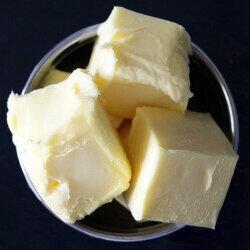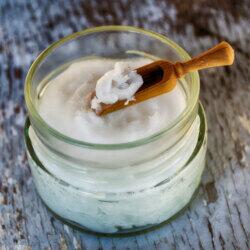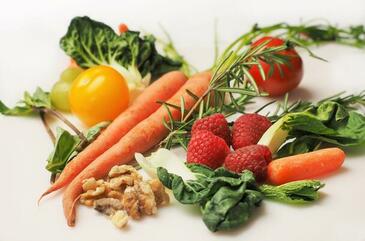What Foods Cause High Cholesterol?
Cholesterol is a fatty substance made by the liver and found in every cell in your body.
It is responsible for a producing:
- Cell membranes, giving them flexibility and strength
- Vitamin D and steroid hormones to keep your bones, teeth and muscles healthy
- Bile, which helps to digest fats
There are two types of cholesterol.
LDL (low-density lipoprotein) cholesterol is often described as 'bad' cholesterol as it can build up and clog your arteries (atherosclerosis), leading to an increased risk of a stroke or heart attack.
HDL (high-density lipoprotein) cholesterol is referred to as 'good' cholesterol as it carries cholesterol back to the liver, where it can be broken down and removed from the body. This can help to prevent or reverse the effects of LDL cholesterol.
It's important to eat the right foods to lower your cholesterol. Keep reading to find out which foods raise your cholesterol and what you can do to lower your cholesterol.
Foods that cause high cholesterol
Foods high in saturated fats are the main contributor to high LDL cholesterol levels in your blood.
These fatty foods can cause a negative impact on your health, including increasing your risk of cardiovascular disease, obesity, heart attacks and strokes.
Processed meats
 Fatty or processed meats like sausages, burgers, and meat pies are high in saturated and trans fats, which contribute to artery blockage.
Fatty or processed meats like sausages, burgers, and meat pies are high in saturated and trans fats, which contribute to artery blockage.
Processed meats additionally contain high levels of salt, which can increase blood pressure and raise your risk of heart disease.
Studies have shown that eating two servings of processed meat a week leads to a 7% higher risk of heart and circulatory diseases, compared to eating none at all.
Butter, ghee and lard

These animal fats consist mainly of saturated fat and trans fats, which also increases the risk of heart attack and strokes.
One study found that of people who replaced just 4.5% of their normal energy intake with either butter or refined olive oil, those eating butter had higher total cholesterol and LDL cholesterol levels at the end compared with those who consumed olive oil.
Cheese, Cream and Yoghurt
Similar to animal fats, full-fat dairy foods are high in saturated fat and trans fats, which also lead to a build-up of LDL cholesterol, contributing to artery blockage and increased risk of heart attack and stroke.
Cakes and biscuits
Many puddings and sweet treats like chocolate and pastries are high in hydrogenated fat, which includes artificial trans fats, that contribute to artery blockage and increased risk of heart attack and stroke.
Additionally, eating too much sugar can also contribute to weight gain and obesity, which in turn increases your risk of high cholesterol and health problems such as heart disease and type 2 diabetes.
Coconut and Palm Oil
 Coconut oil might seem like a healthy option, but it's made up almost entirely of saturated fat, and contains even more saturated fat than butter!
Coconut oil might seem like a healthy option, but it's made up almost entirely of saturated fat, and contains even more saturated fat than butter!
Cutting down on these foods can help to lower your cholesterol and possible reverse the detrimental effects high cholesterol has on your body.
The government recommends that men should not eat more than 30g of saturated fat a day and for women, 20g.
Do eggs cause high cholesterol?
Eggs, kidneys and prawns, are high in what's known as dietary cholesterol.
You can still enjoy these foods in moderation, as these don't increase the amount of cholesterol in your blood as much as foods containing high amounts of saturated fat.
Which foods lower your cholesterol?
Small amounts of foods that are high in unsaturated fat can help to lower your cholesterol, including:
- Oily fish (such as mackerel and salmon)
- Nuts (such as almonds and cashews)
- Seeds (such as sunflower and pumpkin seeds)
- Avocados
- Vegetable oils and spreads (such as rapeseed, vegetable, sunflower, olive, corn and walnut oils)
Foods that are high in fibre can also help to lower your cholesterol and reduce your risk of heart disease. These include:
- Fruit & vegetables
- Wholemeal bread, bran and wholegrain cereal
- Potatoes with their skins on
- Oats and barley
- Pulses (such as beans, peas and lentils)
- Nuts and seeds
Tips for keeping cholesterol low
 Eat a healthy and balanced diet that's low in saturated fat. For example, choose lean cuts of meat, remove the fat, and choose lower-fat varieties of dairy products and spreads.
Eat a healthy and balanced diet that's low in saturated fat. For example, choose lean cuts of meat, remove the fat, and choose lower-fat varieties of dairy products and spreads.
Eat small amounts of foods high in unsaturated fat regularly. The NHS recommend eating at least 2 portions of fish a week, including a portion of oily fish such as salmon.
When shopping, check the nutrition labels on food packaging. Pick foods that are low in saturated fats by looking for the green or amber colour-coded labels. Avoid the items with red on the "saturates" and "salt" portion of the label. IF you can't see the traffic-light code on the food, check the list of ingredients on the back.
Simply changing how you prepare and cook food can have a drastic effect on how healthy it is. Grilling, baking, poaching or steaming food rather than frying or roasting, can minimise the amount of excess oil you use. Swapping coconut oil, butter and lard for vegetable, olive and sunflower oil can also help you reduce the amount of saturated fats you consume.
Exercise regularly, aiming for at least 2.5 hours of intensive exercise a week. We have some great tips on how you can fit in small bursts of exercise in your daily life.
Quit smoking, as this can lead to high cholesterol and increase your risk of heart attacks and strokes.
Reduce your alcohol intake, aiming for less than 14 units (around 6 pints of beer) a week. Alcoholic drinks are often high in calories.
There are products such as dairy spreads and yoghurts that contain plant sterols and stanols. These can reduce the cholesterol in your blood, but there's no evidence they reduce your risk of heart attack or stroke. They are also unsuitable for children and pregnant or breastfeeding people.
How do I know if my cholesterol is high?
The only way to determine whether your cholesterol is high is to have a blood test. This looks for the amount of cholesterol in your blood.
If you're aged 40 to 74, you can get your cholesterol checked as part of an NHS Health Check. You can also get a home cholesterol test kit.
Following your test, a doctor can discuss steps you can take to lower your cholesterol and prevent it from rising.
If your cholesterol cannot be controlled with diet and exercise alone, your doctor may discuss cholesterol lowering drugs with you, such as statins.
By being aware of the foods which cause high cholesterol and sticking to a healthy diet and lifestyle, you can reduce the amount of cholesterol in your blood, and minimise your risk of heart attacks and strokes.
© 2013 - 2026 Al Muhsineen Limited. All Rights Reserved. Registered Pharmacy: 34 Halliwell Road, Bolton BL1 8RL. Registered Office: 254 First Floor, Shearbrow, Blackburn, England, BB1 8DS





